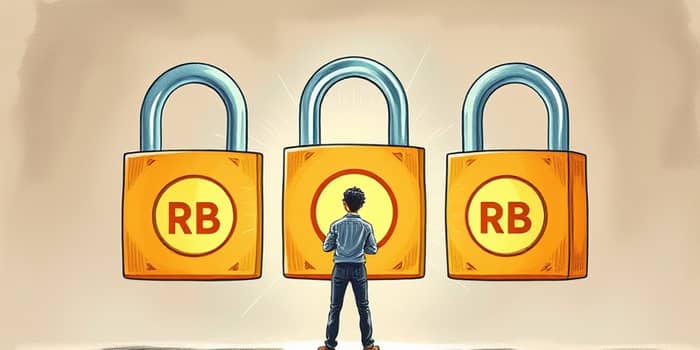Identity theft can shatter your sense of security and derail your financial goals. When someone opens new accounts in your name, the consequences can ripple through your life, causing stress, damage to your credit, and long hours spent repairing the harm.
Implementing a credit freeze is a proactive, free method to restrict access to your credit report and regain control of your financial well-being. By understanding how credit freezes work and when to use them, you can build a strong barrier against identity thieves.
Why a Credit Freeze Matters
In a world where personal data is constantly under siege, a credit freeze stands out as one of the most robust defenses against “new account” fraud. Each year, over one million identity theft cases are reported to the FTC, yet only a small fraction of consumers take advantage of this powerful tool.
By freezing your report at Equifax, Experian, and TransUnion, you create an immediate hurdle for anyone trying to open credit in your name. Without the ability to view your credit history or score, most lenders will simply deny new applications.
What Is a Credit Freeze?
A credit freeze, also known as a security freeze, is a safeguard that blocks access to credit report entirely. When your file is frozen, creditors and lenders cannot pull your report, effectively preventing them from issuing new lines of credit.
This measure does not impact your credit score or your existing accounts. You can continue using your current credit cards, loans, and lines of credit without interruption. In essence, it offers protection without disrupting your financial routine.
How to Freeze Your Credit in 4 Steps
- Gather identification: full name, Social Security number, current and previous addresses, plus government-issued ID.
- Contact each bureau online, by phone, or by mail; freezes must be placed separately.
- Secure your PIN or password for each freeze—this requires your personal information and consent when lifting it.
- Verify confirmation within one business day for online and phone requests, or three days by mail.
Once frozen, you’ll receive a unique PIN or password that allows you to temporarily or permanently lift the freeze whenever you need to apply for new credit.
Comparing Credit Freeze, Fraud Alert, and Credit Lock
Before deciding on the best protection, it’s helpful to understand how different tools compare.
While fraud alerts and credit locks each have their place, only a credit freeze blocks access to your credit report entirely under federal law, making it the strongest defense against unauthorized account openings.
When to Consider a Freeze
A credit freeze is most critical in these scenarios:
- After a data breach exposes your personal information.
- When you suspect or confirm identity theft.
- As a proactive step for ongoing protection.
There’s no need to wait until you’ve been victimized. Freezing your credit now can prevent headaches, lost time, and financial setbacks in the future.
Tips to Maintain Frozen Security
A freeze is only as effective as the measures you take to support it. Follow these best practices to ensure continuous protection:
- Store PINs/passwords securely in an encrypted digital vault.
- Review your credit reports annually for anomalies.
- Extend protection to minors by placing Protected Consumer freezes.
By treating your freeze credentials with the same care as your most sensitive documents, you guard against unauthorized thawing attempts.
Embracing Financial Peace
Choosing to freeze your credit is an empowering declaration: you refuse to be a victim. This simple, cost-free step can provide an unshakeable sense of security as you pursue life’s goals—whether buying a home, starting a business, or planning for retirement.
Take control today by contacting Equifax, Experian, and TransUnion. With each bureau locked down, you’ll rest easier knowing you’ve built an empowering shield against identity theft that stands guard over your financial future.
Your journey toward financial peace of mind starts now. Act confidently, act decisively, and let your credit freeze be the foundation of your proactive defense against theft and fraud.
References
- https://www.usa.gov/credit-freeze
- https://consumer.ftc.gov/articles/credit-freeze-or-fraud-alert-whats-right-your-credit-report
- https://www.equifax.com/personal/credit-report-services/credit-freeze/
- https://ncdoj.gov/protecting-consumers/protecting-your-identity/free-security-freeze/
- https://pirg.org/edfund/resources/identity-theft-is-soaring-reduce-your-risk-dramatically-by-simply-freezing-your-credit-files/
- https://www.aura.com/learn/credit-lock-vs-credit-freeze
- https://pirg.org/resources/credit-freezes-how-to-prevent-new-account-identity-theft/










